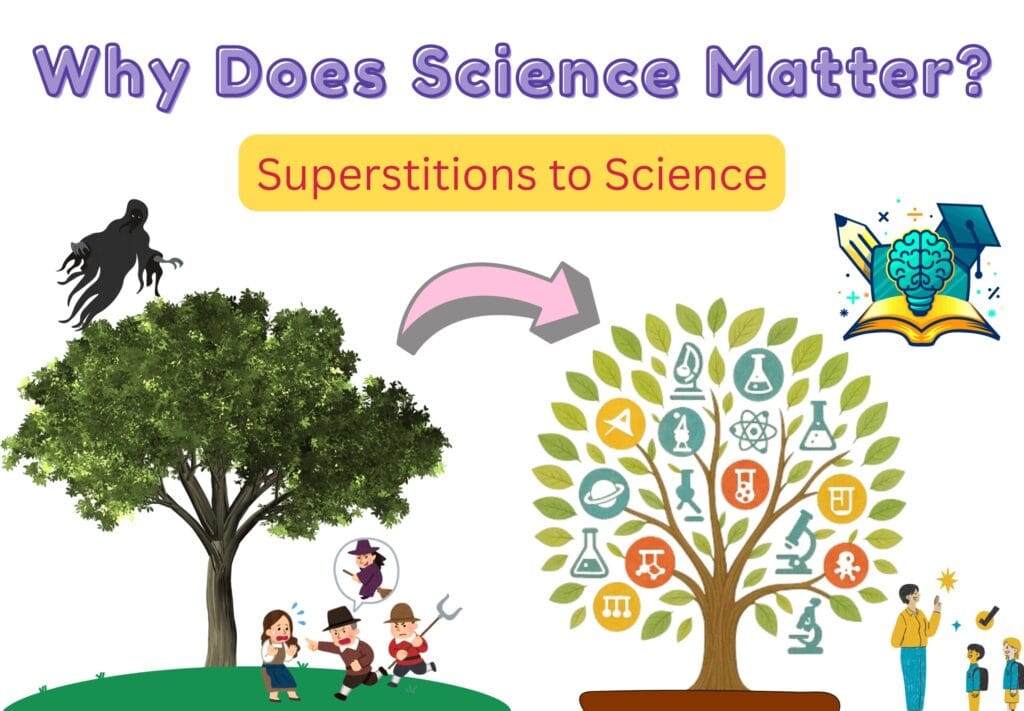Why does science matter? Well, it helps to think clearly, live wisely, solve the puzzles of the universe, and appreciate the world that the Creator has given us.
Table of Contents
Introduction
For centuries, people have tried to make sense of the world around them. When something strange or tragic happened—like a sudden death or a natural disaster—they often turned to stories of curses, spirits, or magic.
But as human knowledge grew, they discovered a better way to understand these mysteries through the lens of science.
The Journey of Mr. and Mrs. X
In ancient times, the generous Mr. and Mrs. X were traveling with their servant. One evening, they arrived at a long-abandoned tunnel. As night fell, Mr. X chose to sleep under a nearby tree, while Mrs. X went into the tunnel to rest. The servant remained near the carriage to guard it.
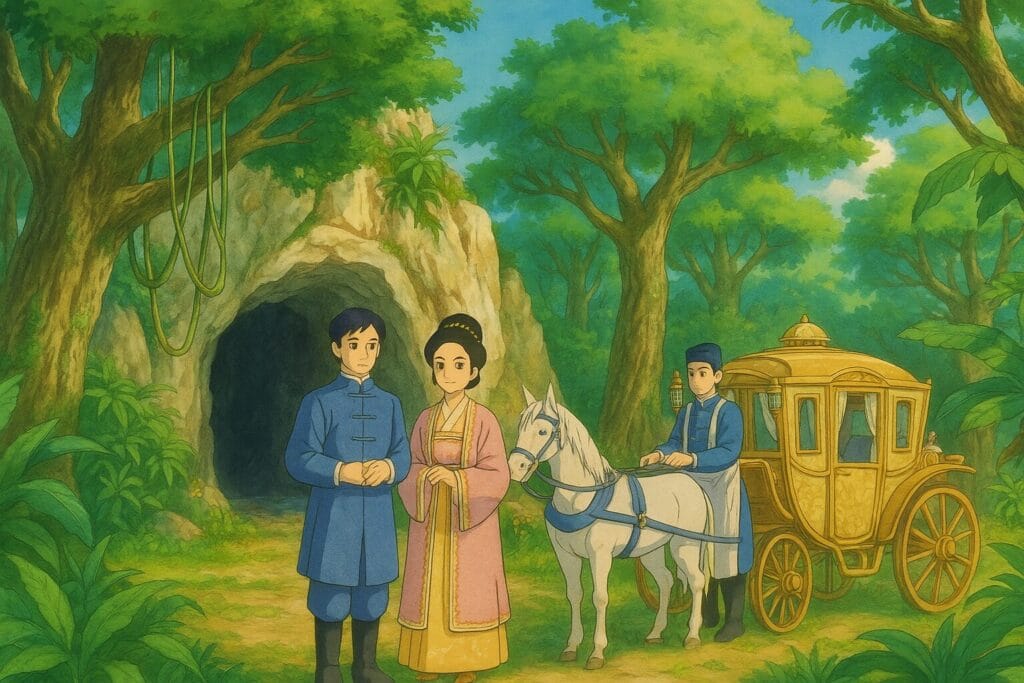
At dawn, neither Mr. X nor Mrs. X awoke. When the servant went to check on them, he found both were dead. Word of the incident quickly spread. Some accused the servant of murder, while others claimed the tree was bewitched or the tunnel haunted by ghosts.
These stories reflect the superstitions people often believed in long ago. Many thought that certain trees possessed dark powers or that ancient tunnels and caves were home to harmful spirits. While it is true that the universe holds many mysteries, blaming every strange or unexplained event on supernatural forces is irrational.
As humanity’s understanding of nature grew, it led to the development of science, a word that comes from the Latin scientia, meaning knowledge. This knowledge made it possible to investigate such eerie stories and uncover what happened to Mr. and Mrs. X on their journey.
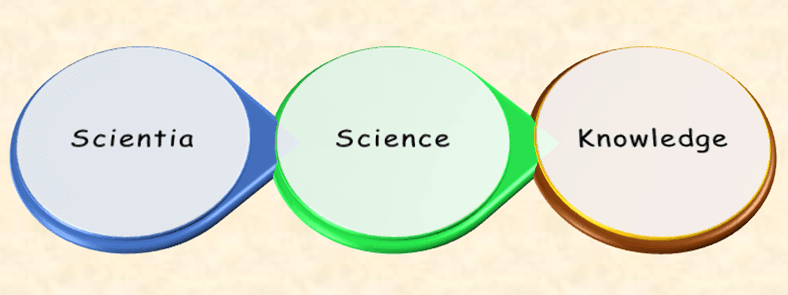
What is Science?
So, what is science, and why should you learn it? The simplest answer is this:
Science is a way or a technique by which we understand the world around us. We study it because it helps us explore the questions we have and invent things that improve our lives in different ways.
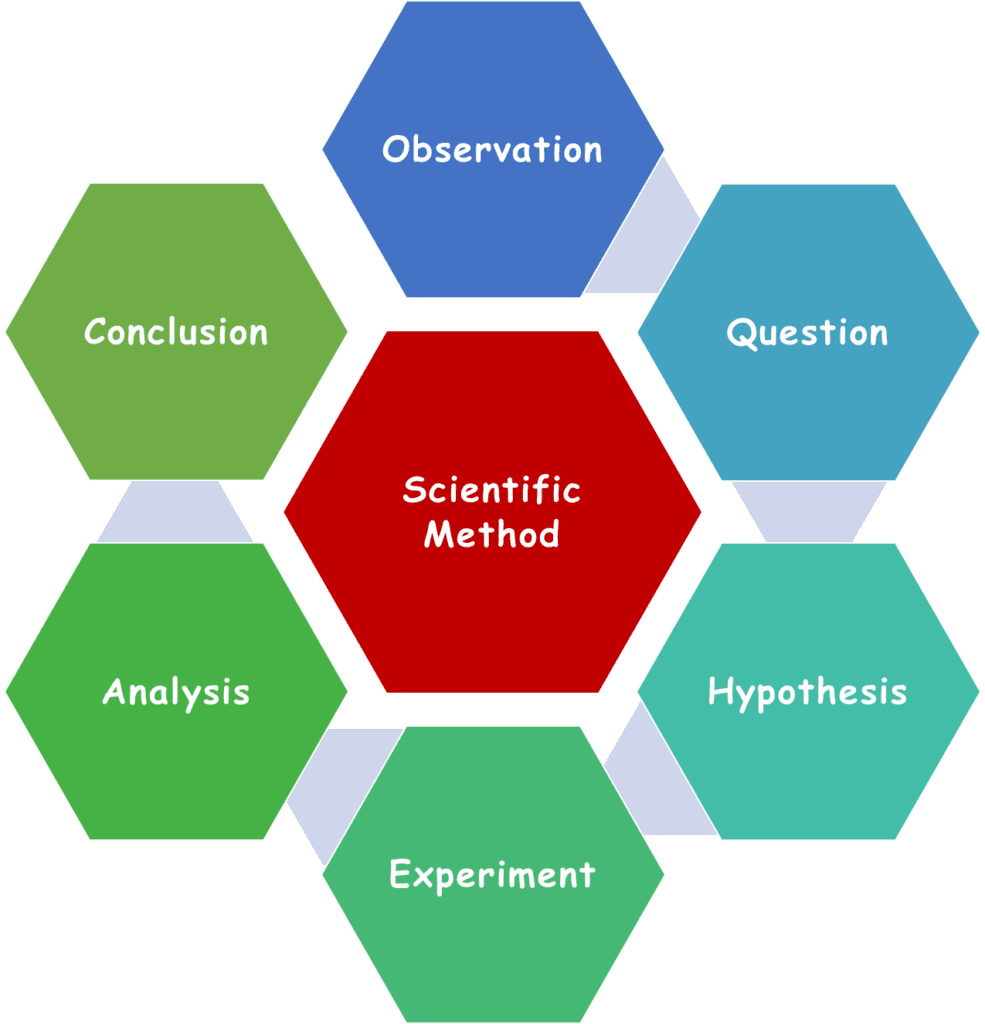
Science explains natural phenomena—from the rising and setting of the sun to the changing seasons and weather patterns. It allows us to travel across the world in just a few hours—something that once seemed unimaginable.
Is Science Alone Enough?
Science can explain a lot of things. For instance, in the story of Mr. and Mrs. X, at first, people believed they died because of ghosts, curses, or evil spirits. But science gives us another way to understand what may have happened:
- The tree where Mr. X slept might have released toxic gases at night, or perhaps it harboured venomous insects that bit him.
- The tunnel where Mrs. X rested might have had poor air circulation, leading to low oxygen levels or poisonous gases like carbon monoxide.
Science helps us move beyond such fears and superstitions. It shows us the natural causes behind mysterious events—and that is how humanity has progressed.
Science also helps to explain the wonders of our world, like:
- How planes fly
- Why ice melts
But science, powerful as it is, cannot answer every question. It does not tell us:
- Why should we be honest
- Why kindness brings inner peace
- Why do we feel guilty when we do wrong
These are matters of the heart, and that is where faith and values play their role.
Islamic Teachings
In Islam, you are taught that knowledge is powerful. It is not just the knowledge of the textbook, but also the understanding of right and wrong. The Prophet Muhammad (ﷺ) said,
“Seeking knowledge is an obligation upon every Muslim.”
The Holy Quran urges us to reflect, explore, and be grateful. It says,
“Read in the name of your Lord who created.” (96:1)
In this way, you see, science and faith work together. One helps us understand the world, and the other helps us understand our purpose in it.
Science + Faith = A Full Picture of Life
Science and faith are not enemies—they are like best friends who bring different strengths to the table.
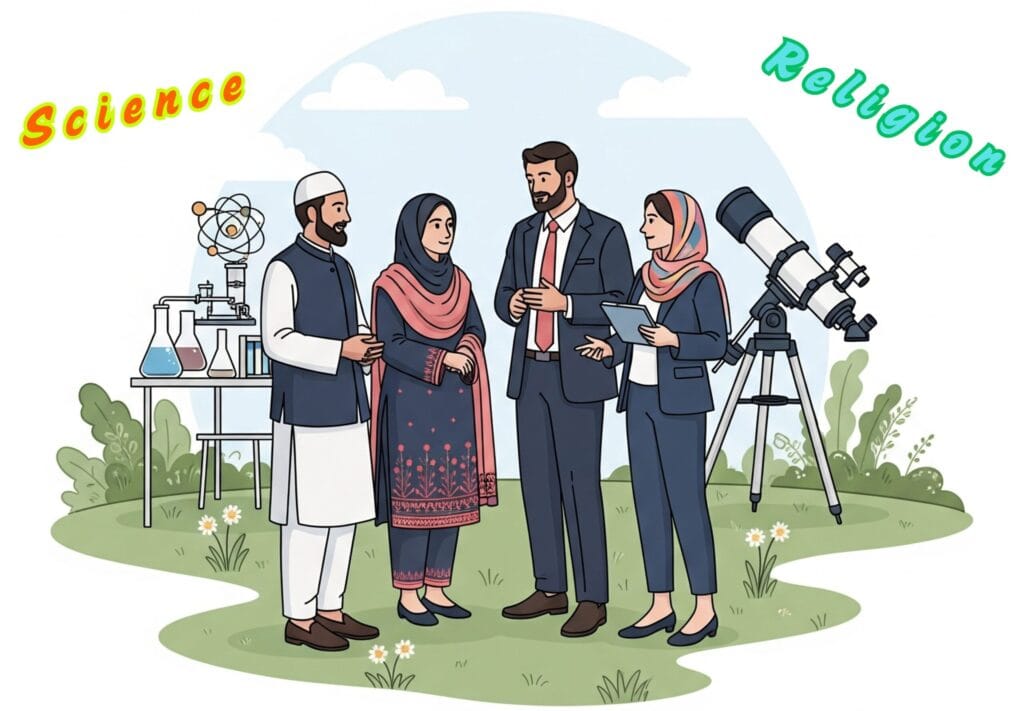
Science teaches us how rain happens; faith teaches us to be thankful for the rain. Science shows us how plants grow; faith teaches us to care for those plants and not waste them.
When you use both your brain and your heart, you are not just a smart person—you are a wise one.
Science is important because it answers questions, keeps us safe, opens our minds, and helps us appreciate the world Allah has created. Most of all, it makes life less frightening and far more exciting.
How Science is Benefitting Us?
1. Science Helps Us Understand the World
Science is like a giant magnifying glass. It helps us zoom in and understand how things work. From volcanoes to viruses, science gives us the tools to figure out the mysteries of nature.
2. Science Makes Us Better Thinkers
Science is not just about numbers, experiments, analysis, laws, and principles. It is a way of thinking. Even if you are not a scientist, learning science enables you to think clearly and make smart choices in everyday life.
3. Science Leads to Inventions and Technology
Every cool gadget, equipment, or machinery (like smartphones, airplanes, and video games) you use or see was created because someone put their mind to studying science and succeeded in discovering or inventing something new!
4. Science Explains Big Questions
Science tries to explain what, why, and how things happen. For instance, it explains the formation of stars and the ways to improve human life standards. It also validates that behind the grand scheme of this universe, there is a Creator.
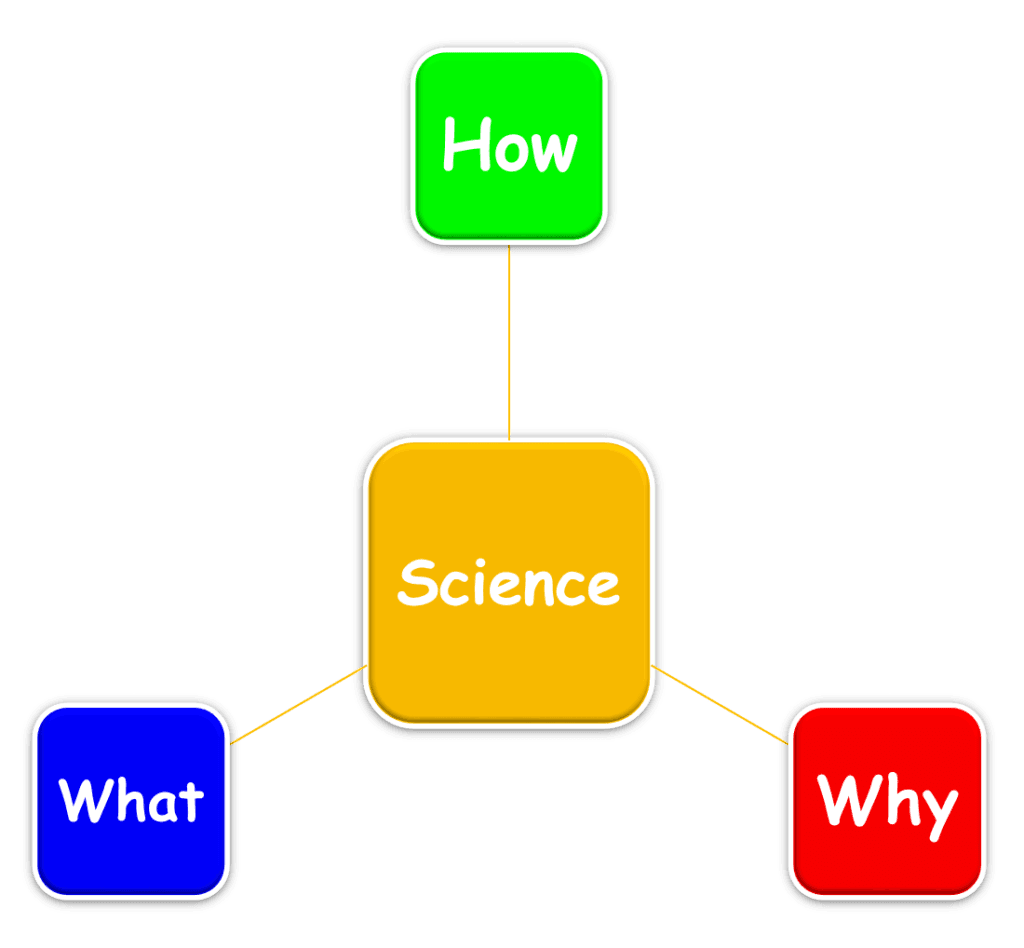
Science does not always answer every “why”, but it sure helps us discover, explore, and invent.
5. Science Assists Us to Help Others
Science helps doctors to cure diseases, engineers to build safe bridges, and farmers to grow healthy food. When you learn science, you are not just getting smarter—you are learning how to make the world a better place.
6. Science Is for Everyone—Even Kids!
You do not have to be a grown-up to love science. Anyone can be curious. Anyone can explore. Anyone can be a little scientist.
Conclusion
In a nutshell, you need to know science because it helps us understand, think, create, and care. Whether you are 7 years old or 70 years old, science gives you the power to ask great questions and find amazing answers.
Remember, the study of sciences is awesome!
Frequently Asked Questions (FAQs)
Why does science matter? Write its importance in our daily life.
It helps us understand how things work—like weather, technology, and health—making life safer, easier, and more exciting every day.
How does science help us make better decisions?
By teaching us to think logically, ask questions, and analyse facts, it helps us make smarter and more informed everyday choices.
What are real-life examples of how science improves human life?
It has led to inventions like smartphones, vaccines, clean water systems, and renewable energy, improving health, comfort, and communication.
How does science work with religion in Islam?
In Islam, science and faith go hand in hand—one explains the world, while other gives purpose, encouraging reflection, gratitude, and care.
Can children understand and benefit from science?
Absolutely! Science is for everyone—even kids. It encourages curiosity, learning, and discovery, making it fun and educational from a young age.

